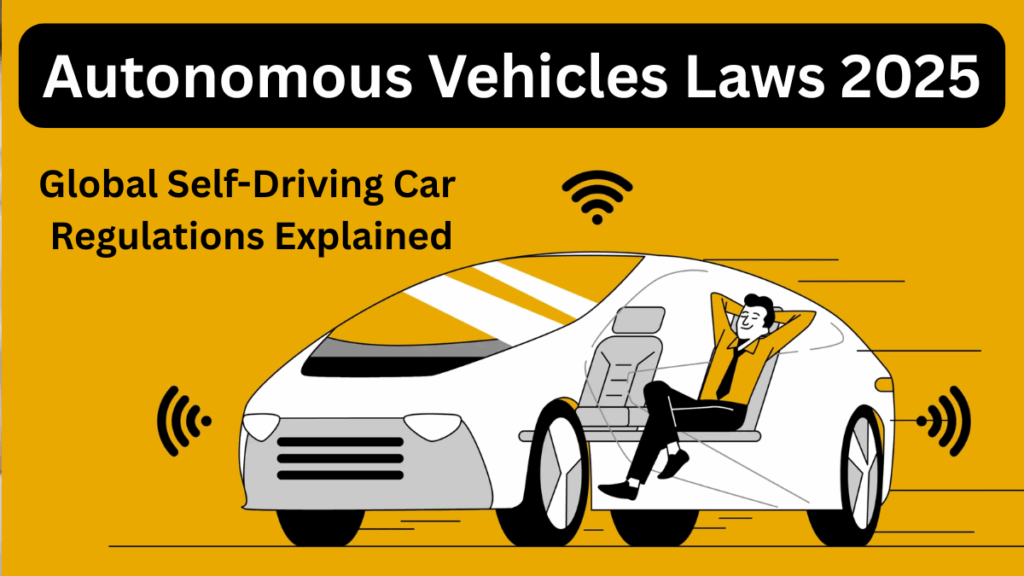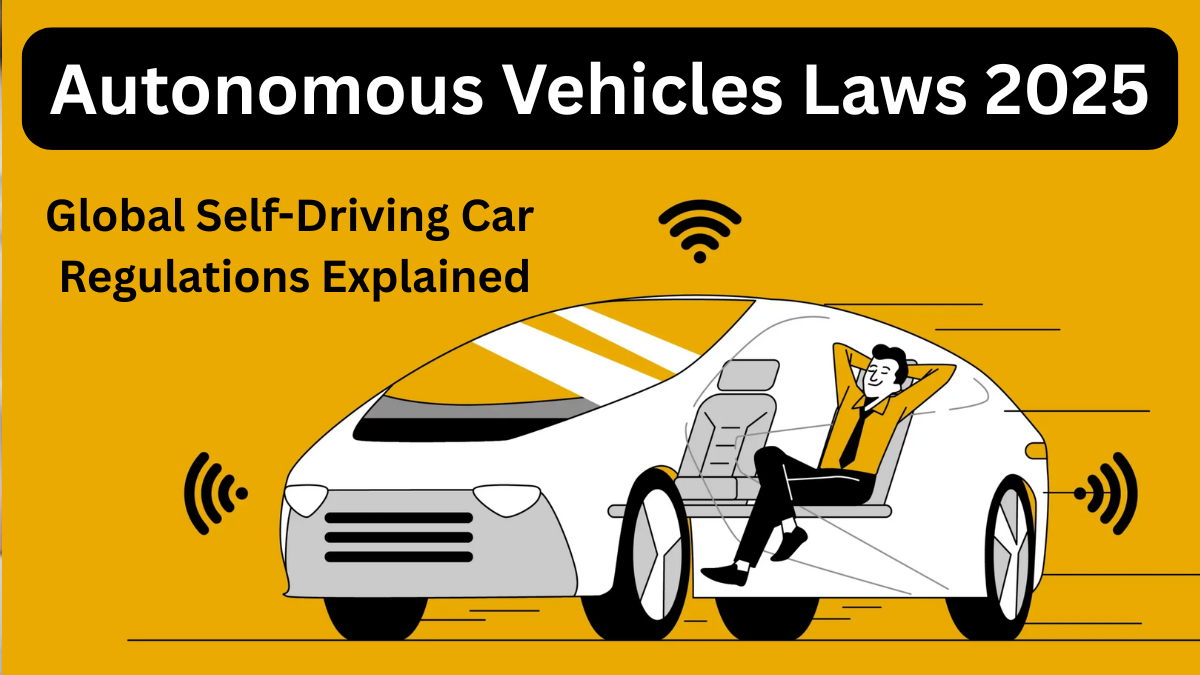The year 2025 marks a major shift in the world of autonomous driving. As self-driving technology moves closer to everyday reality, countries across the world are implementing Autonomous Vehicles Laws 2025 to keep pace with innovation and protect public safety. Whether you’re an auto industry player, tech enthusiast, or everyday driver, understanding these evolving self-driving regulations is more important than ever.
Let’s break down the latest global policy updates and what they mean for the future of mobility.

Why New Self-Driving Regulations Are Essential in 2025
With autonomous vehicles gaining ground, older traffic laws are no longer enough. The updated self-driving regulations address:
-
Safety standards for vehicle-pedestrian and vehicle-vehicle interaction
-
Legal clarity on liability in accidents involving autonomous vehicles
-
Technical benchmarks for autonomous systems and software
-
Public confidence in adopting driverless technology
Snapshot of Autonomous Vehicles Laws 2025 Across the World
A closer look at how leading regions are adapting self-driving regulations under the new global policy framework:
| Region | Key Regulations in 2025 | Status |
|---|---|---|
| USA | Federal rules for AV safety, data transparency | Active |
| European Union | Cross-border AV operation laws, uniform safety standards | Phased rollout |
| China | Geofencing for cities, real-time data reporting required | Nationwide enforcement |
| Japan | Highway-focused AV policies, updated insurance rules | Fully active |
| Australia | Extended trials, national framework in development | Under review |
How Autonomous Vehicles Laws 2025 Will Impact You
For Drivers
-
Special training or certification may be required to use autonomous modes
-
Clearer road markings and zones for AV operation
-
New insurance products tailored for self-driving use
For Manufacturers
-
Vehicles must meet advanced safety and tech standards
-
More data-sharing obligations with regulatory bodies
-
Opportunities in markets with forward-thinking self-driving regulations
Key Challenges Facing Global Self-Driving Policy
Even with progress on Autonomous Vehicles Laws 2025, key hurdles remain:
-
Aligning global policy so AVs can operate across borders seamlessly
-
Protecting vehicles from cybersecurity threats
-
Navigating ethical challenges in complex driving scenarios
FAQs
What is the aim of Autonomous Vehicles Laws 2025?
The goal is to create self-driving regulations that make autonomous driving safe, ethical, and reliable while promoting technological progress.
Will self-driving cars be legal everywhere by 2025?
No. Most global policy approaches limit autonomous vehicles to specific areas like highways or designated urban zones for now.
How is insurance changing under Autonomous Vehicles Laws 2025?
Insurance will shift from focusing on driver error to addressing manufacturer and software liability in the case of accidents.
Are self-driving regulations the same globally?
Not yet. While regions are working to align global policy, national laws still reflect local needs, cultures, and infrastructure differences.
Click here to learn more
